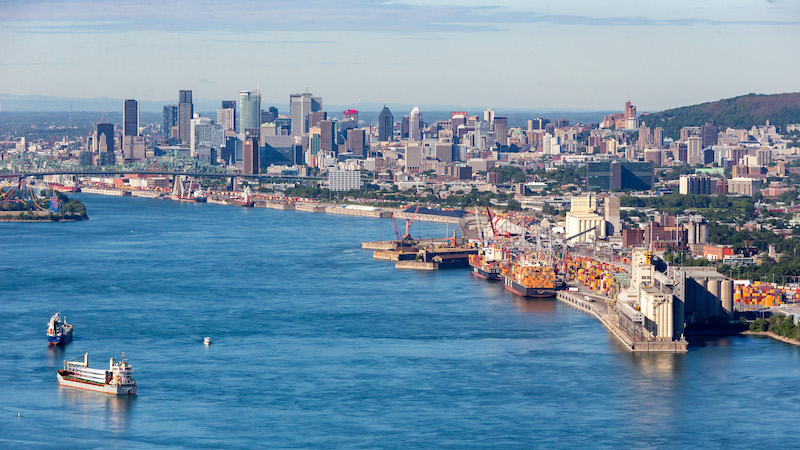Potential waterfront labor stoppages at Vancouver, Prince Rupert and Montreal are once more on the radar screen. Federal mediators have been brought in to help avert a repeat of the strike actions by unionized dockers against maritime employers at Canada’s three biggest container ports that severely hit supply chains in the past few years.
The outlook appears more preoccupying for importers and exporters depending on the Port of Montreal since all the port’s 1,100 dockers are implicated, whereas the deadlocked negotiations in British Columbia ports involve just the 730 ship and dock foremen and not all 7,500 longshoremen in the province.
For the Canadian ports concerned, the uncertainty on the labour front is coinciding with declines in container traffic that have experienced many ports amidst global high inflation, economic slowdown, and numerous geopolitical conflicts.
At the same time, various unions in North America have recently been emboldened by winning record pay hikes for their members. Witness the double-digit wage increases negotiated by the United Auto Workers (UAW) for thousands of Big Three employees. Moreover, waterfront labor issues in the United States appear on the horizon with the contract negotiations with International Longshoremen’s Association (ILA), which represents longshoremen on the East Coast and Gulf.

Montreal Negotiations
And at a different level, but significant in terms of stabilizing maritime trade in the industrial heartland of North America, some 360 striking Canadian Seaway workers last November obtained annual wage increases of 5%, 4% and 4% retroactive to April 1, 2023, along with a $2,000 signing bonus.
Negotiations for a four-year collective agreement between the Maritime Employers Association (MEA) and Local 375 of the Canadian Public Employees (CUPE) representing the Montreal dockers had barely started last September before the union asked the federal government to appoint a mediator – an early sign of conflicting demands. The existing pact expired on December 31.
But no strike or lockout scenario has immediately surfaced as the Canada Industrial Relations Board (CIRB) reviews a recent application by the MEA to have some longshore services declared “essential services” under a section of the Canada Labour Code. The two parties must submit more information by mid-February – and until the review is complete neither side can decide to take industrial action.
Docker strikes hit the Montreal waterfront in the summer of 2020 and spring of 2021. The 2021 strike was halted through back-to-work federal legislation and binding arbitration. Under the Canada Labour Code, federally regulated employers can apply to the CIRB to require work to continue during a stoppage if it’s deemed necessary to “prevent an immediate and serious danger to the safety or health of the public.”
According to reports that have filtered out, high up on the wish list of the Montreal docker union is a 20% hike in wages over four years as well as permanent job security after three years. Among other matters, the MEA is reportedly seeking greater operational flexibility and adjustments on the number of workers benefiting from guaranteed job security.
A CUPE spokesperson indicated the union will make no comments while negotiations are in progress.
West Coast labour deadlock
Last August, weeks of turbulence for business and transportation providers ended with the ratification of a new four-year deal between the International Longshore and Warehouse Union Canada (ILWU) and the B.C. Maritime Employers Association (BCMEA). But The negotiations for the collective agreement with the BCMEA and ILWU Local 514 Ship & Dock Foremen are ongoing.
In the latest development, this past January 10, the BCMEA filed a Notice of Dispute, seeking conciliation assistance from the Federal Mediation and Conciliation Services in an effort to conclude a negotiated collective agreement with ILWU Local 514 Ship and Dock Foremen that ensures certainty for Canada’s West Coast ports. In response, three conciliation officers were appointed to assist the Parties in reaching a negotiated settlement.
Under the Canada Labour Code, the conciliation officers have a 60-day mandate from the day of appointment (up to March 19, 2024). Any extension beyond 60 days can be made only by mutual consent of the parties. At the end of the conciliation period, a 21-day cooling off period begins (up to April 9, 2024).
The BCMEA affirms: “We strongly believe the best deals are achieved at the table and that a negotiated settlement is possible with conciliation.”
to the British Col


